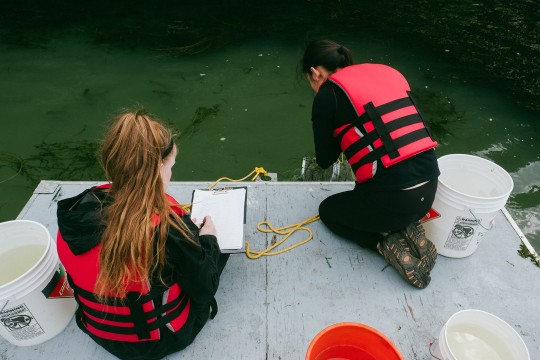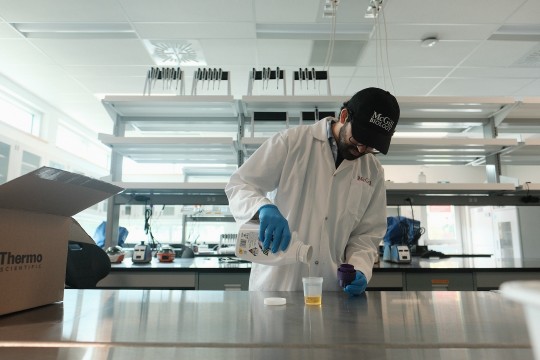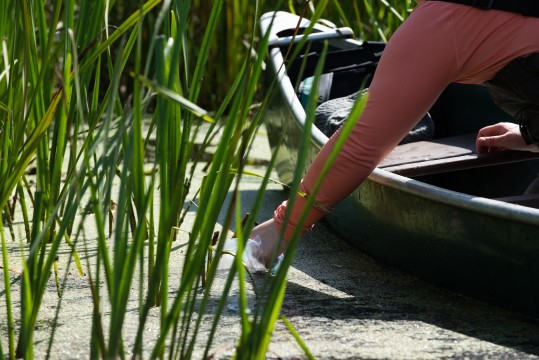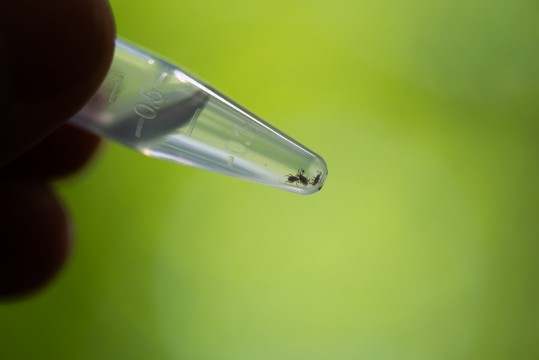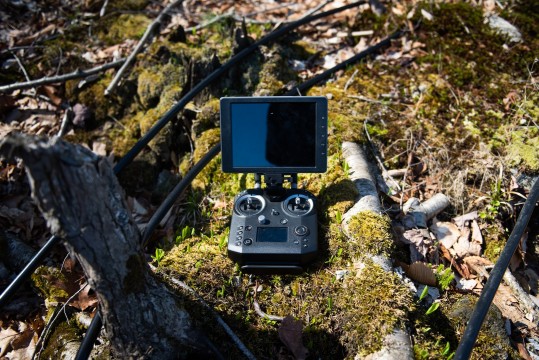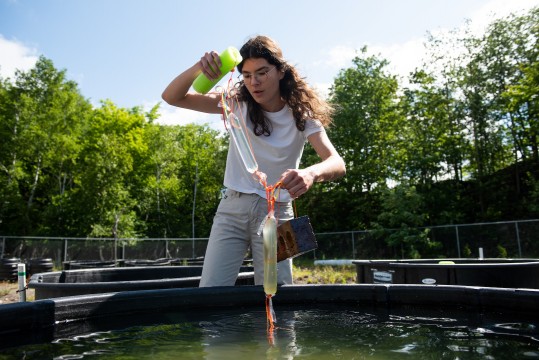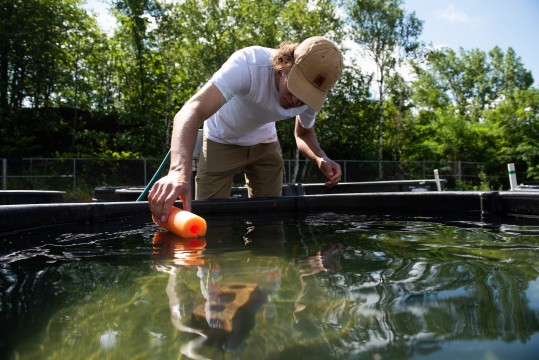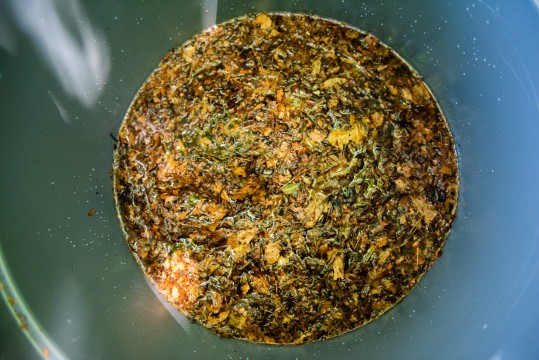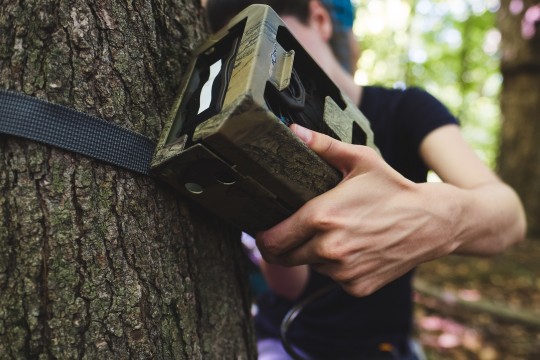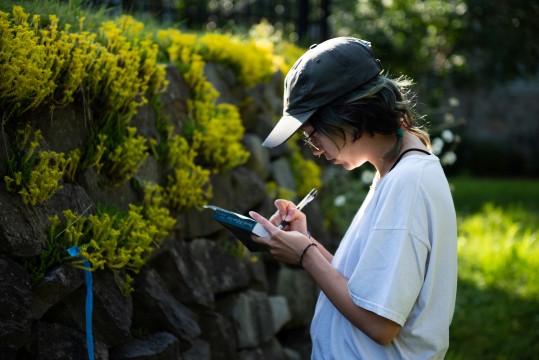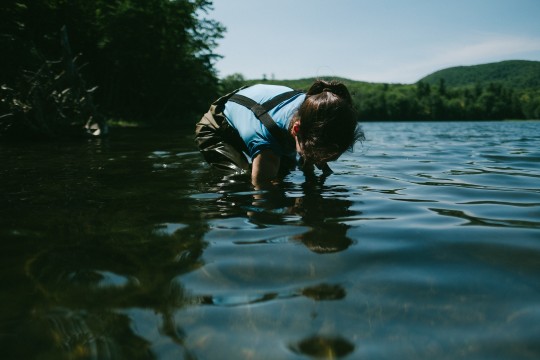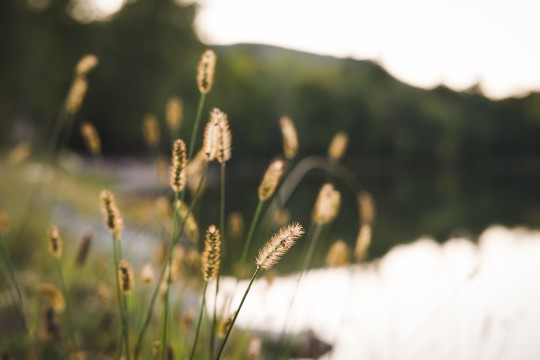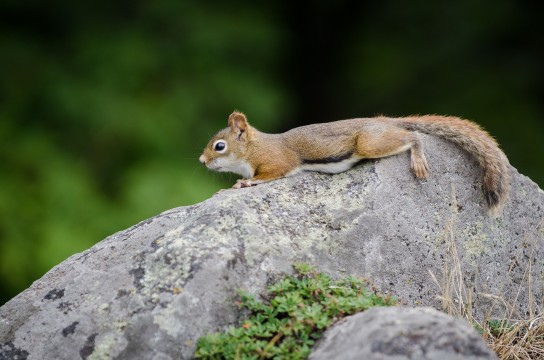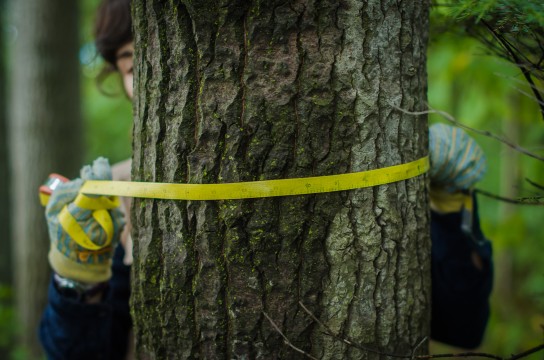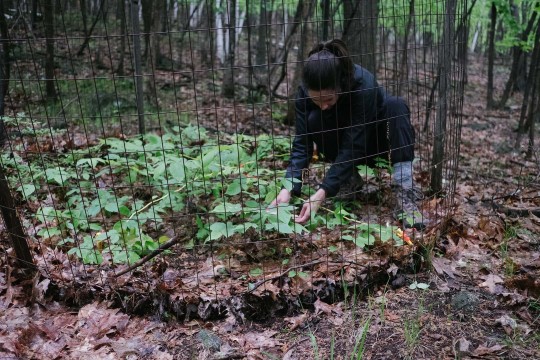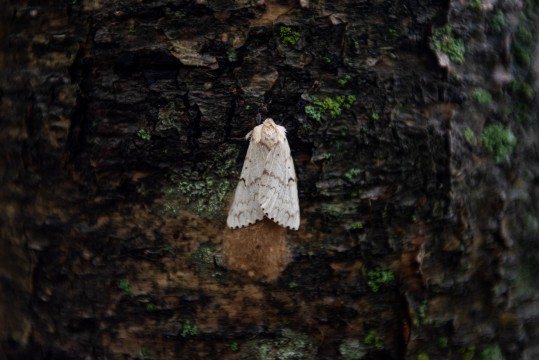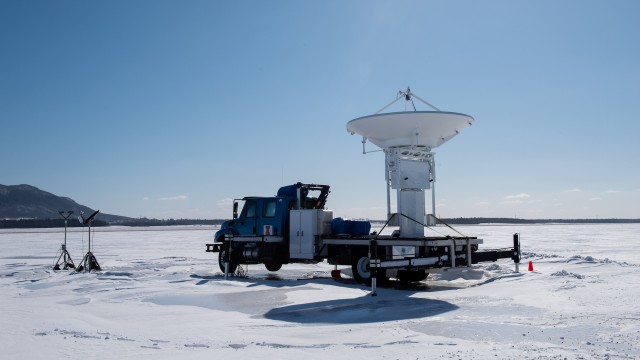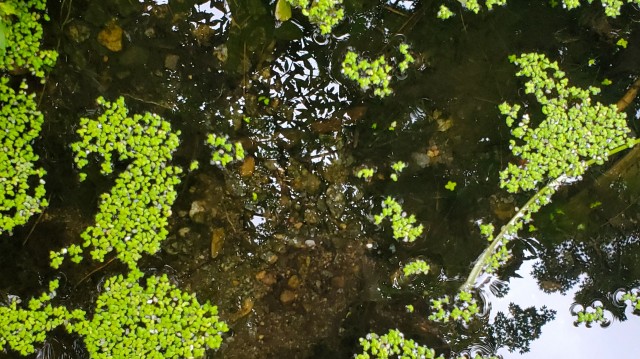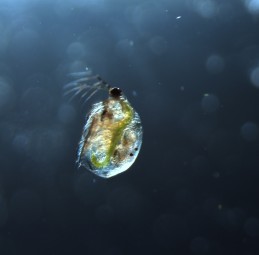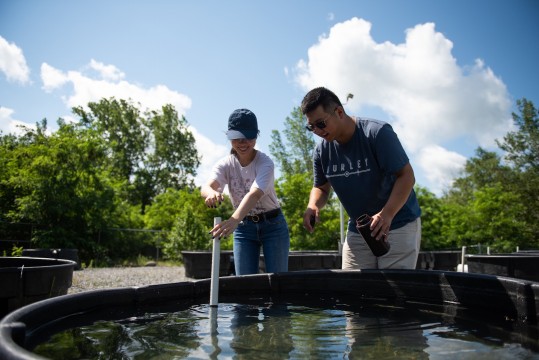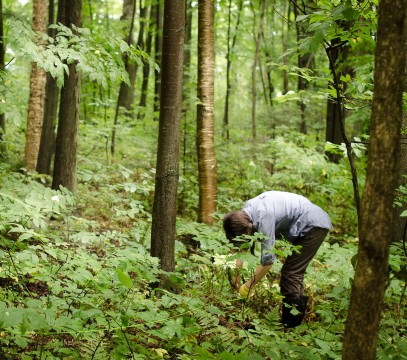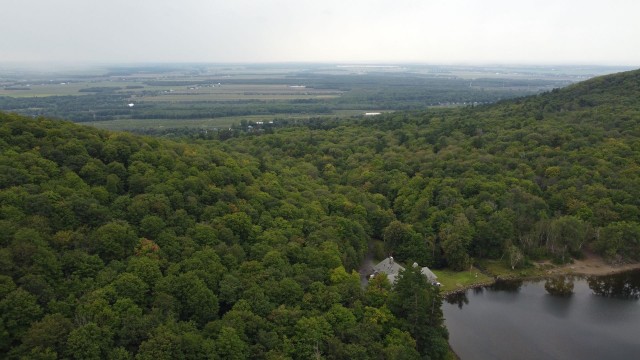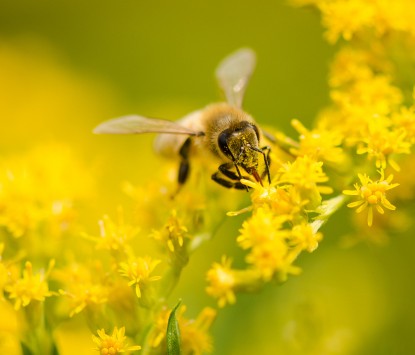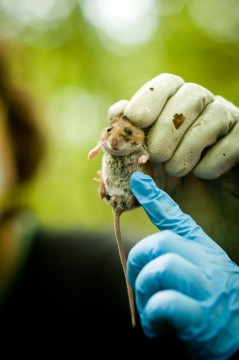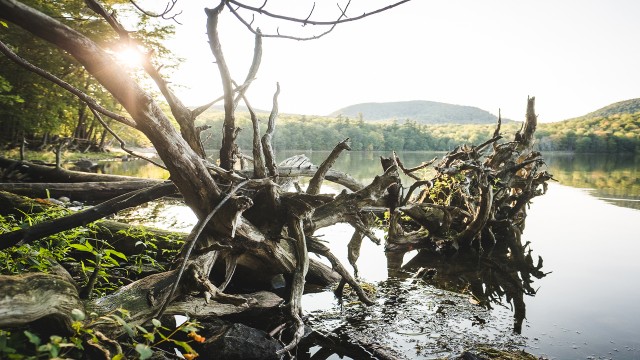Science is at the heart of our mission.
Gault Nature Reserve is a research station of the Faculty of Science of McGill University. We also manage the Helen and Wilder Penfield research station.
Requesting a research permit
You must request a research permit before starting your fieldwork at Gault Nature Reserve or at Penfield research station. Your permit needs to be renewed every year.
To apply:
- Consult the Research Guide
- Fill out the Research Permit Application
- If you wish to stay overnight, please also fill the Lodging Form
Once your request is submitted, it will be reviewed by the Executive Committee of the Reserve. We will be in touch by email with more information.
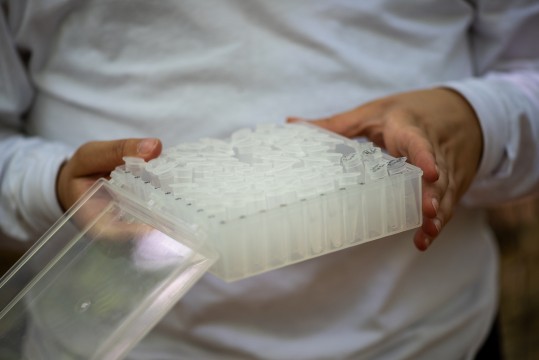
Access to data
- For more information on Mont Saint-Hilaire's biodiversity, consult our species lists.
- For scientific data please contact us at science@reservegault.ca.
Gault Research Awards
We are proud to support research through our Gault Research Awards.
The Gault Research Awards program funds projects at Gault Nature Reserve (Mont-Saint-Hilaire, QC) or at the Wilder and Helen Penfield research station (Austin, QC).
Adaptation to Multiple Simultaneous Stressors in Freshwater Bacterioplankton
Akhil Sanjay Kholwadwala, Ph.D.
Supervisors: Prof. Rowan Barrett and Prof. Jesse Shapiro
Affiliation: McGill University
Start date: 2023
Research area: Large Experimental Array of Ponds
Projects funded by the Gault Research Awards
Quantifying the form and function of aquatic plants in Southern Quebec
Doctorate project of Lindsay Trottier, a McGill student supervised by Lars Iversen. This project started in 2023 at Gault Nature Reserve and Wilder and Helen Penfield research station.
A Case Study on Ticks and Lyme Disease: Exploring the Impacts of Humans on Wildlife, Ecosystem Health and Disease Risk.
Kari Hollett, M.Sc.
Supervisor: Prof. Virginie Millien
Affiliation: McGill University
Start date: 2021
Research area: Gault Nature Reserve
Using Drones and Thermal Imagery to Estimate White-Tailed Deer Overpopulation on Mont Saint-Hilaire
Savannah Bissegger O'Connor, B.Sc.
Supervisors: Dr. Tim Elrick and Prof. Jeffrey Cardille
Affiliation: McGill University
Start date: 2021
Research area: Gault Nature Reserve
Monitoring the Effects of Herbicides on Bacterioplankton
Master's project of Emma Derrick, a McGill student supervised by Prof. Jesse Shapiro. This project started in 2022.
Assessing the Impact of Surrounding Microbial Community Interactions on Rhizobium Following Herbicide Stress
Maxime Guglielmetti, B.Sc.
Supervisor: Prof. Rowan Barrett
Affiliation: McGill University
Start date: 2022
Research area: LEAP
The Effect of Contaminants on Mercury Buildup in Aquatic Food Webs
Maude Lachapelle, Ph.D.
Supervisors: Prof. Irene Gregory-Eaves et Dr. Zofia Taranu
Affiliation: McGill University and Environment and Climate Change Canada
Start date: 2021
Research area: Lac Hertel
Finding Common Ground: How Hikers Influence White-Tailed Deer Space-Use Patterns in a UNESCO Biosphere Reserve
Master's project of Frédérique Truchon, a McGill student co-supervised by Virginie Millien (McGill University) and Martin-Hugues Saint-Laurent (Université du Québec à Rimouski). This project started in 2018.
Research facilities
The special nature of the mountain, its rich scientific history, its proximity to Montreal, its accommodations and its teaching and research facilities make it an exceptional venue for academic and scientific activities.

Adaptable Earth Observation System (AEOS) Laboratory
Inaugurated in 2022, the Adaptable Earth Observation System (AEOS) serves as a laboratory for advanced ecological and meteorological research. Learn more.
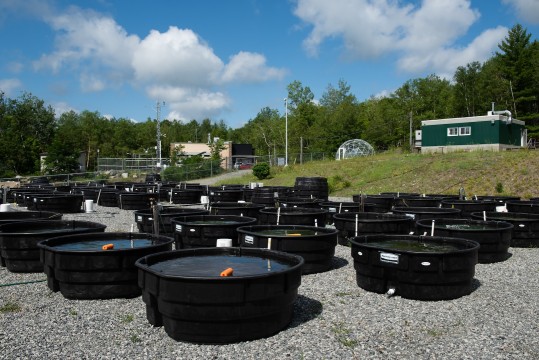
Large Experimental Array of Ponds (LEAP)
Inaugurated in 2016, the Large Experimental Array of Ponds (LEAP) at Gault Nature Reserve consists of 96 “ponds”, which can be filled with water from Lac Hertel to conduct mesocosm experiments. Learn more.

Stearn teaching laboratory
This laboratory is dedicated to field courses. It was once known at the Stearn Lithological Library. McGill University researchers used it to preserve rock and mineral samples.

Hydrology lab
This laboratory was the old chlorination station for the RIEVR (Régie Intermunicipale de l'Eau de la Vallée du Richelieu). It provides direct access to water from Lac Hertel.
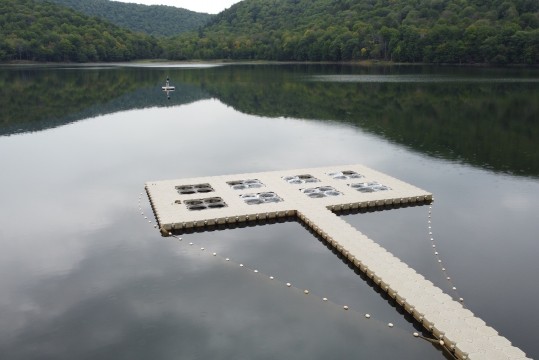
Lac Hertel Mesocosms
An experimental dock used to study aquatic communities. It can contain up to 32 replicates (mesocosms), enabling environmental conditions manipulation without adverse impacts on the natural ecosystem. Learn more.

Fleet of research boats
Gault offers a fleet of boats for aquatic studies and data collection. Oars and electric motors are provided, as well as life vests.

Network of white-tailed deer exclosures
Since 2006, numerous exclosures have been built on Mont Saint-Hilaire. These fenced areas allow for the study of vegetation response to white-tailed deer browsing. Each exclosure is paired with a control plot of the same size. Learn more.
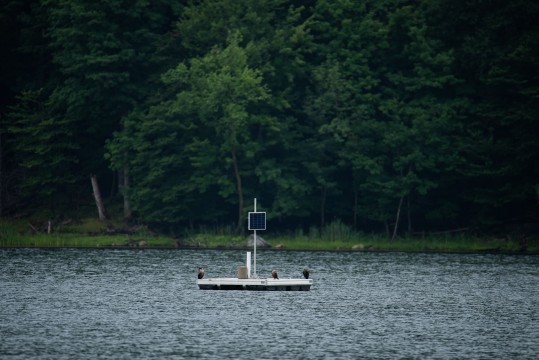
Biological Observation Buoy (BOB)
This buoy takes continuous measures of environmental variables in Lac Hertel water column (temperature, dissolved oxygen concentration, pH, turbidity, etc.) Learn more.
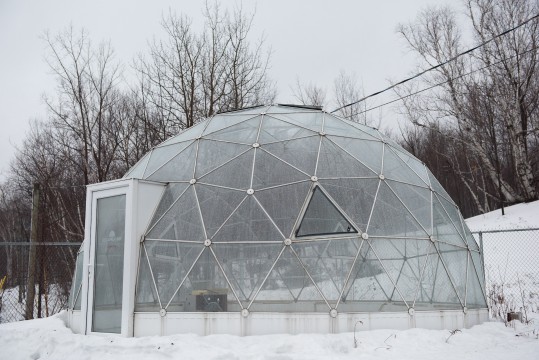
Dome
Experimental pond (6.5 m in diameter and 2 m deep) covered by a geodesic dome for environmental control. This infrastructure enhances the ecological realism of our experiments while retaining very high levels of control and replication.
Want to learn more about our facilities before applying for a research permit? Contact us at science@reservegault.ca.
Bibliography
Consult our bibliography of scientific publications to learn more about past research conducted at Gault.
Complete bibliography
The wealth of studies on Mont Saint-Hilaire is reflected in over 400 scientific articles, nearly 100 master's and doctoral theses, more than 50 reports, and approximately 30 chapters or books dedicated to its exploration.
The first scientific studies on Mont Saint-Hilaire date back to 1859, with pioneers such as Sir John W. Dawson, T. Sterry Hunt, and Frère Marie-Victorin exploring its vast forests.
Recent research projects
An overview of projects happening at Gault in recent years.
